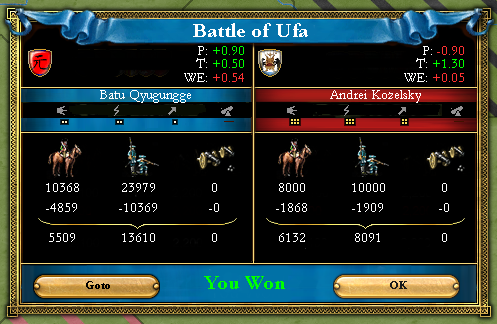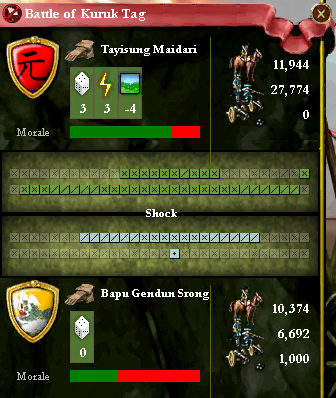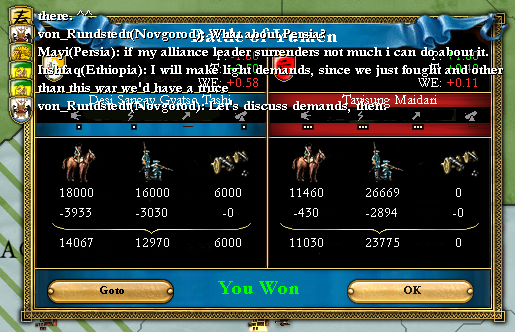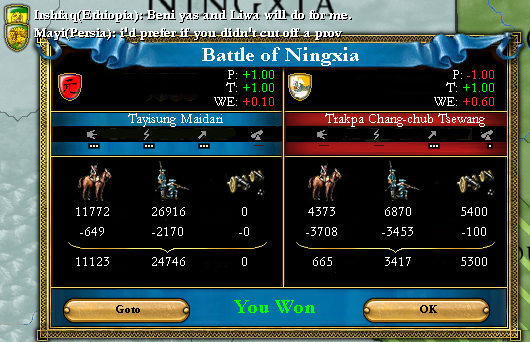The Death of Hope
"How long, O Mikael, will you abuse our patience? How long shall we wait for victory? How long shall we send our sons to die on distant frontiers, and bury them for the quarrels of dead men?" Thus begin the Mikaeline Orations, hurled by Ioannes Angelidis at his rival Mikael Konstandis. (*) In so doing Ioannes was venting the feelings of a rising generation of Romans, who chafed at the sumptuary laws, the military discipline, and the austere customs of New Byzantium. They felt, not unreasonably, that if these generations-long sacrifices had failed to bring the long-sought Day of Victory, in which Rome would finally triumph over its enemies, then the Victory was probably not achievable. And if that were so, they asked, what was the use of each succeeding generation shouldering increasingly intolerable burdens?
In this rebellion against the fanatical devotion of previous years, the Hedonist faction (as their opponents, who came in contrast to be called Ascetics, labelled them) was aided by the widespread sense of disillusionment after the War of the Continents (1572-1580). There is a certain amount of irony in this, for the legions had in fact acquitted themselves well, advancing far into the Tibetan highlands and even scoring victories over the dreaded Russian armies. The Komnenoi, who had uncomplainingly borne a century of bitter defeats and ever-increasing preparations for the Next War, now lost their balance precisely when it seemed that all their hard work was being rewarded. Yet it is easy to understand why: For the Siberian and Tibetan fronts, into which the Romans yet again poured blood and treasure, were secondary theatres on the scale of the War of Continents; and when Bavarian resistance on the distant Oder collapsed, New Byzantium - victories or no victories - was forced to make peace.
Defeat was not new to the Roman people, and might have been met by renewed determination to resist, to sacrifice, and to struggle. But to
win, to see sons and fathers come home safe and bringing with them the captured weapons of their foes, and then
nevertheless be forced to make concessions at the peace table, because of battles lost by foreign peoples on the other side of the world - this, finally, was unbearable. The human spirit will take only so much; and the Roman state was not a dictatorship, with sacrifice and austerity enforced by secret police and informers. Its discipline rested on consensus and peer pressure, in keeping with its own self-image as a society of free citizens who just happened all to be fanatically devoted to the same goal. Now, at last, that dam broke. The extreme 'consensus' the Romans had maintained proved, in the end, to be brittle as glass. A few dissenters willing to brave the disapproving looks and the hushes were sufficient. In the end, the Romans really were free citizens of a republic: Once each one realised that they were not alone in resentment, once it was shown that such things could be spoken in public without the sky falling, established custom broke like a mirror under a sledgehammer. Bereaved parents openly admitted that they would rather have their sons back than public honour; veterans spoke of their outrage at seeing their sacrifices wasted.
The sumptuary laws were the first to go; it was impossible to enforce laws that half the population deliberately flouted. Their actual repeal was spearheaded by Ascetics who realised that restrictions on clothing and jewelry as such had become purely symbolic, and willing to sacrifice the symbol in exchange for maintaining the substance of respect for the law. But this was just the initial skirmish. Next, a substantial body of young men refused to volunteer for military service. Here was a substantive issue, and one that could not be fought on the principle of written law; for the Komnenoi had made a point of not formally conscripting anyone. Military service was theoretically voluntary; it was enforced by custom, expectation, and the fact that no respectable family would marry its daughters to a man who had not served. But this line, too, fell with the instantness of ice cracking in the spring melt: When half a dozen families of equestrian rank announced the military strike together (some of them, it should be noted, quite ignoring that their sons actually wished to serve!) they could not all be ostracised - if nothing else, there were enough of them that they could simply intermarry among themselves, thus avoiding the final sanction. Again, the Ascetics yielded what they could not hold: They realised that they could not afford to split the Komnenoi into those whose sons served, and those who didn't. Thus they retreated to the higher ground of Roman unity and one rule for all, hoping that in time the bitterest disappointment would fade and military service would regain its near-compulsory character.
In this they were not to be wholly disappointed; for the fact remained that the Roman Khanate was surrounded on all sides by aggressive powers, and that Roman rule was in the final analysis maintained by force. A state which included a crumbling frontier with such a power as Russia, which had to defend against raids out of the Tibetan highlands, and whose own subject peoples regarded horse-stealing as a cross between national pastime and the only proper way to make a living, could not become pacifist. But neither could the high tension of previous decades, the instant readiness to drop everything and wage total war with every man, horse, and speck of gunpowder, be recaptured. The Komnenoi had asked too much of themselves, and the younger generation repudiated the aim of vengeance against Persia (and Russia, and Tibet...) with an almost audible sigh of relief.
Yet it was one thing to end the custom of public fanaticism; it was quite another to decide what was actually to be done. The Roman state still faced intractable border problems and powerful enemies; when even victory in the field was insufficient, what course should the state take? In these circumstances, combined with the sudden loosening of all the old austere customs, it is not surprising that many in New Byzantium turned to the opposite end of the spectrum; as always in times of great uncertainty, "eat and drink and be merry" was a popular slogan, "for tomorrow we may die". True decadence was not to be achieved in a few short years, but by the standards of 1560, New Byzantium in 1580 was one with Sodom and Gomorrah - nor did there lack Ascetics to predict that it would soon be one with Nineveh and Tyre.
Nor, perhaps, were their predictions entirely unjustified. What would be the fate of a second-rank power in the face of Russian expansion and Tibetan imperialism? Militarism had failed to provide an answer; but those who rebelled against complete submission to the State had no positive policy to put in its place. Not for nothing did the peace treaty, formally the Treaty of Jaipur, come to be known in New Byzantium as the Death of Hope.
(*) Since the Greek population at New Byzantium are all considered 'Komnenoi' whatever their actual bloodline (and through interbreeding they are most of them descended in part from one of the male Komnenoi who joined the Long March), they have taken up patronymics to distinguish men of the same given name.
-----------------------------------------------------------
Some battles of the War of the Continents. First, Roman legions crushing Russian armies. Roman victoglory, yeah!
Then, Tibet. Terrain malus be damned!
It worked, too. Tibet lacks the manpower to really fight a war of attrition. But as you can see from the peace discussion, it didn't really matter by this stage.
Tibet's armies were collapsing at this stage. Unfortunately Bavaria surrendered first.





